Billy Teets
-

A Narrow View of Orion
A narrowband view of the Orion Nebula. This false-color view shows emission from sulfur atoms in red, hydrogen in green, an oxygen in blue. Approximately nine hours of exposures (three hours per narrowband filter) went into constructing the psychedelic view of this well-studied stellar nursery. Credit: Billy Teets Want… Read MoreFeb. 23, 2026
-
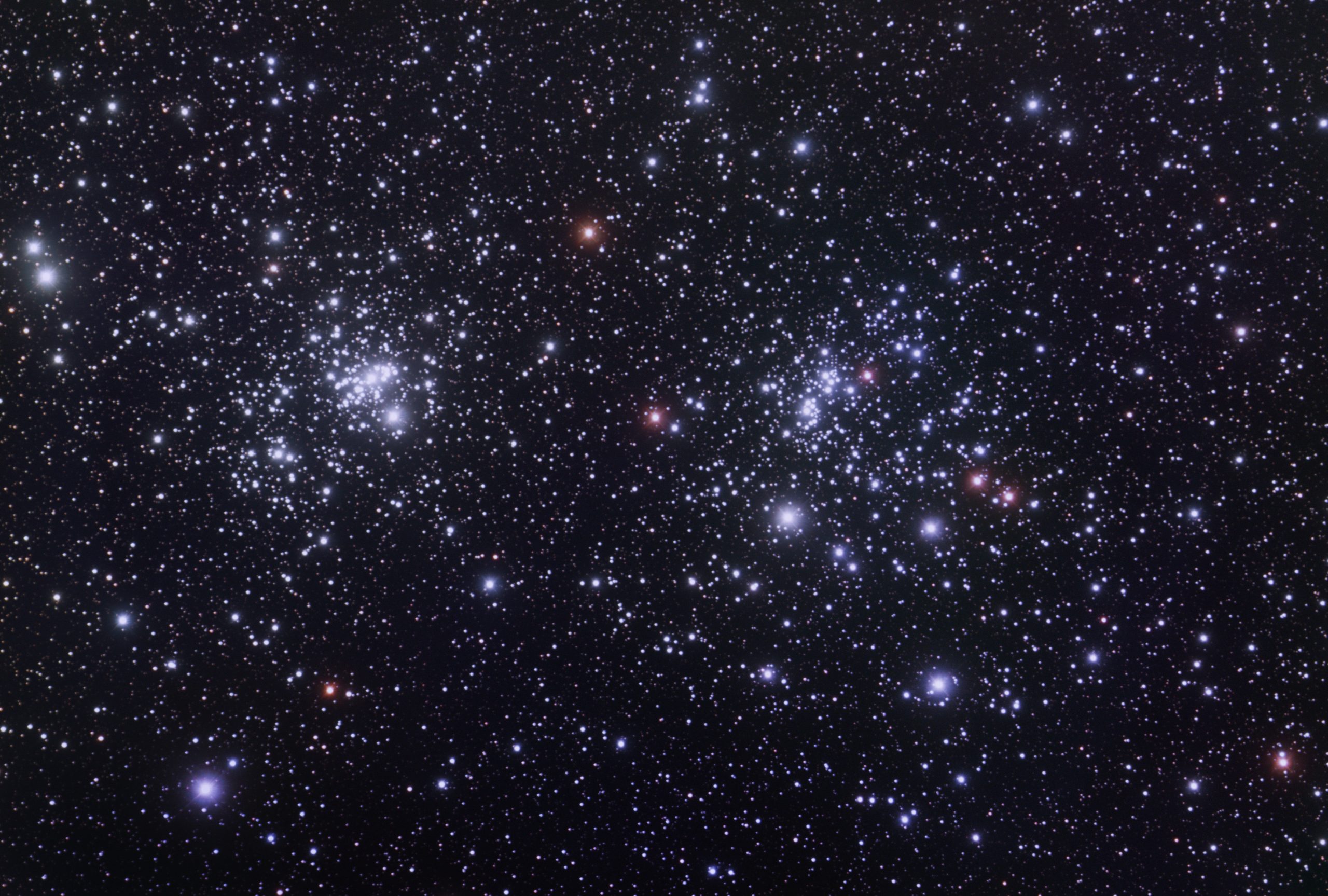
The Double Cluster of Perseus
The Double Cluster of Perseus. Open clusters NGC 869 (left) and NGC 884 (right) barely fit into this wide-field view taken by a 16″ telescope at Dyer Observatory. Credit: Billy Teets Overhead during frigid January evenings lie quite a few notable constellations of Greek myth. King Cepheus and Queen… Read MoreJan. 26, 2026
-

The Elephant’s Trunk
A narrowband, false-color view of the Elephant Trunk Nebula (IC 1396A) in Cepheus. The colors correspond to light emitted by sulfur (red), hydrogen (green), and oxygen (blue). Credit: Billy Teets Up to our north in the constellation Cepheus, the king, lies a cloud of gas and dust 100 light-years… Read MoreDec. 17, 2025
-
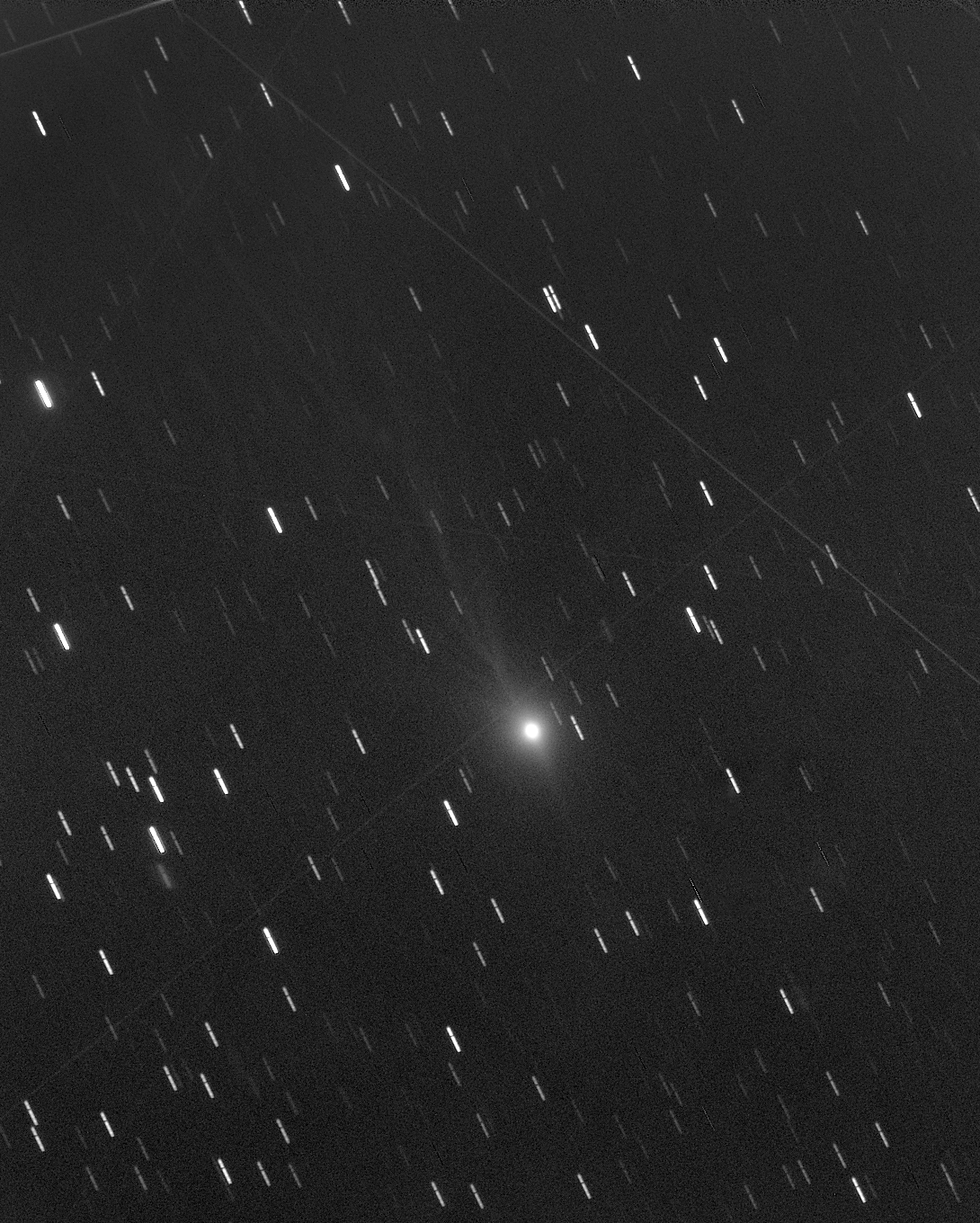
TWO Comets Named ATLAS
Comet 3I/ATLAS appears near the center of the this long-exposure composite. Fifteen two-minute exposures were processed and digitally added (centering on the comet) so that fainter details would become visible. Since the comet was moving during the shorter exposures, aligning all images to the comet results in the stars… Read MoreNov. 19, 2025
-
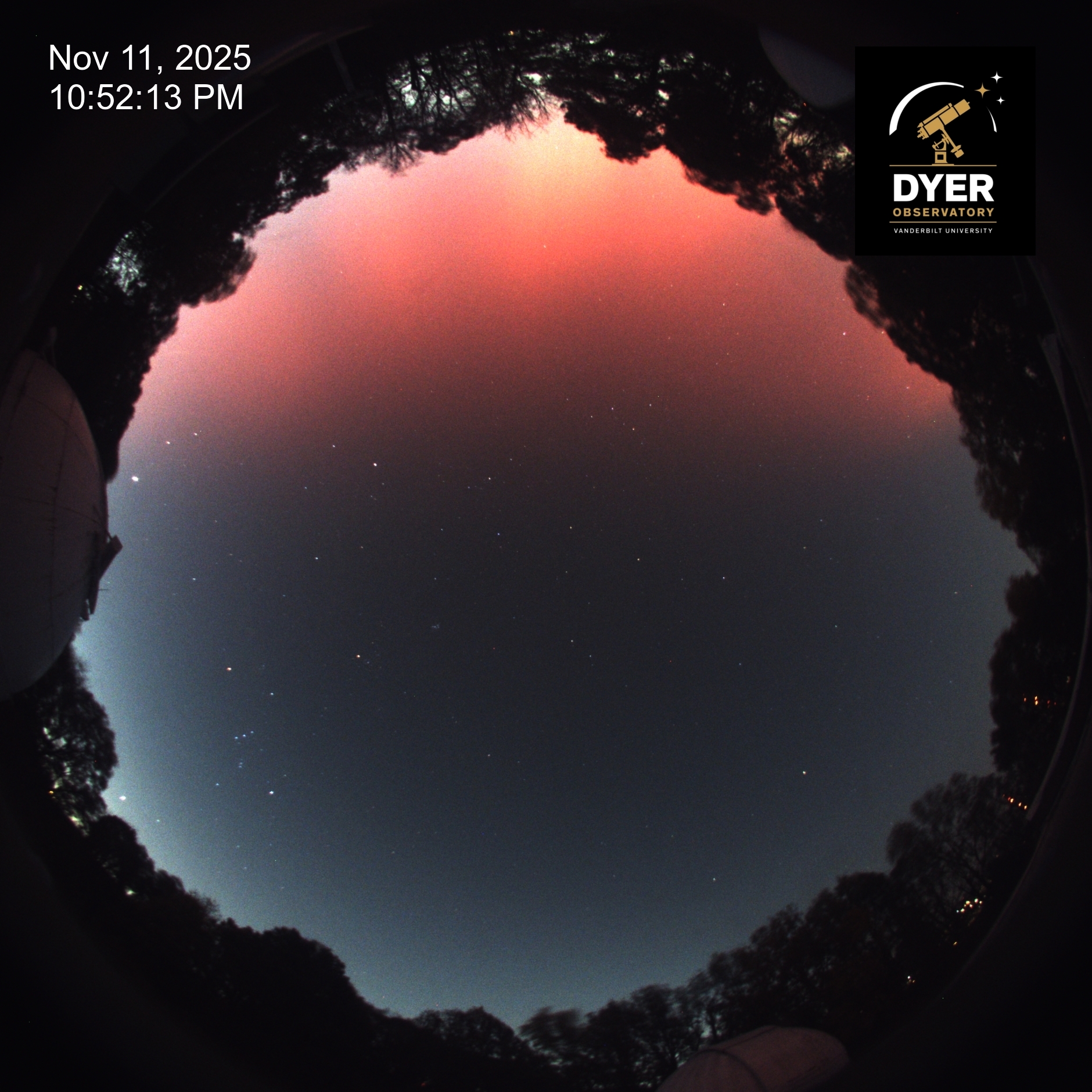
Northern Lights Dance Above Dyer
A powerful G4 geomagnetic storm erupted on the night of November 11, 2025, thanks to two coronal mass ejections (CMEs) slamming into Earth. This will be the third time during the present solar maximum in which aurorae have been observed from Brentwood, TN. In this all-sky view from a… Read MoreNov. 19, 2025
-
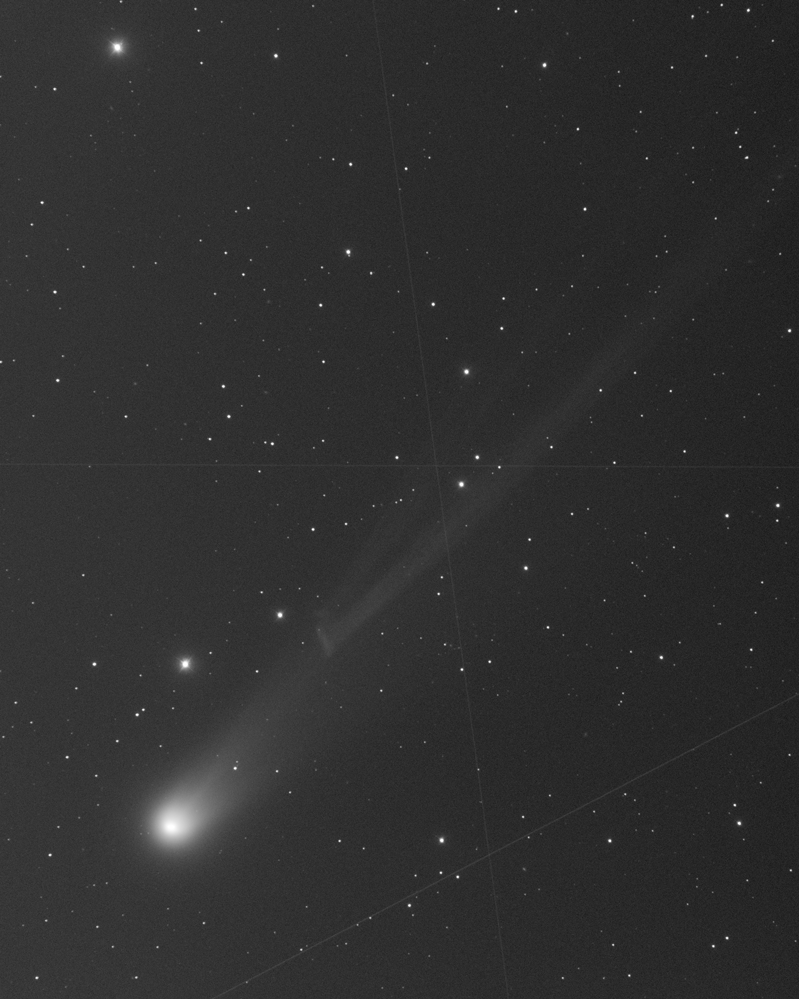
A Double Dose of Comets
Comet C/2025 A6 (Lemmon) was observed from Dyer Observatory just prior to sunrise on October 5, 2025. These two-minute exposures show how rapidly comets move among the background stars and how quickly the dust tail can change. Numerous passing satellites left streaks in several of the frames, and the… Read MoreOct. 28, 2025
-
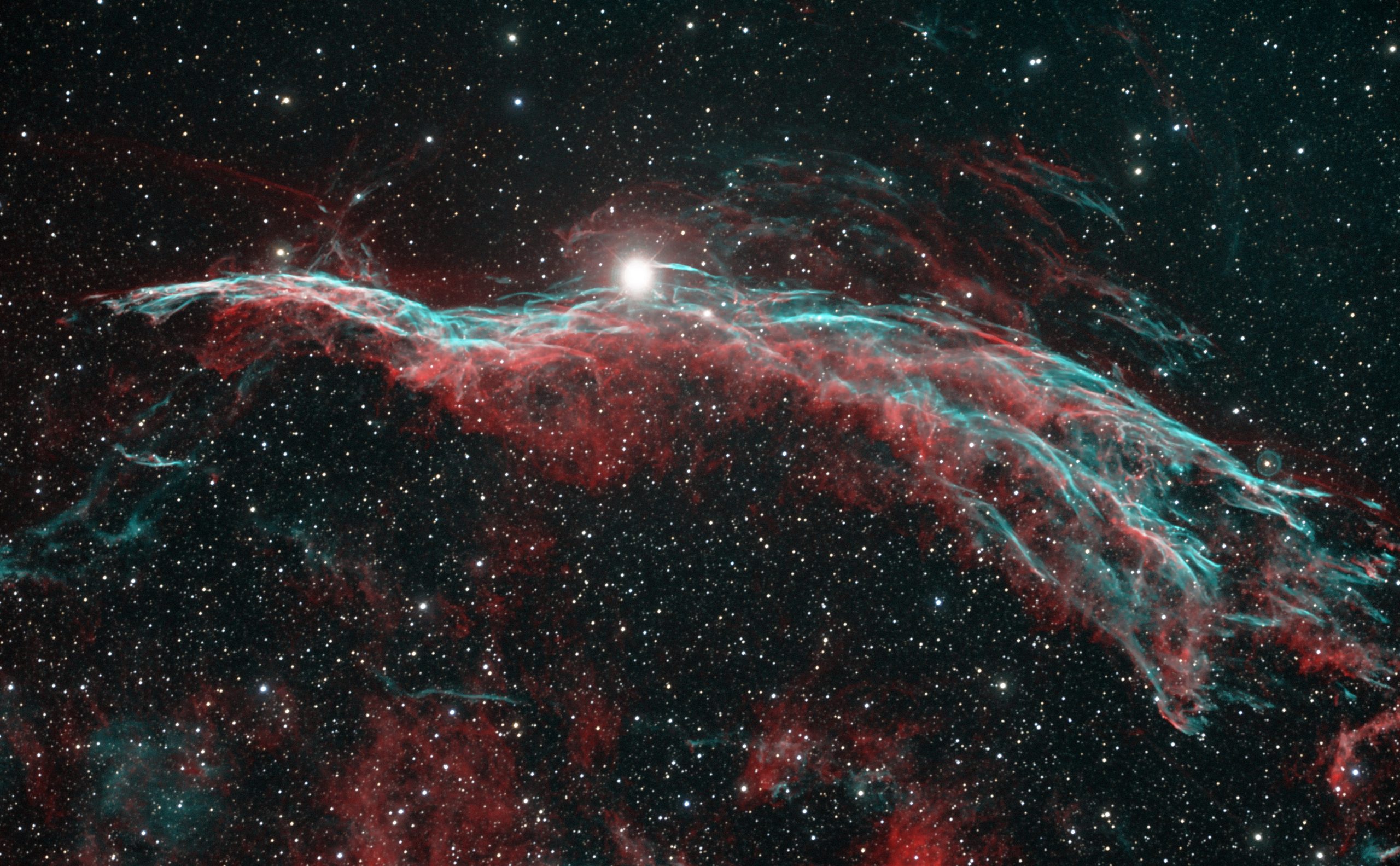
The Witch’s Broom Nebula
The Witch’s Broom Nebula is part of a large supernova remnant known as the Cygnus Loop. The dominant red and teal emission is due to hydrogen and oxygen atoms. The image above is a composite of nearly 10 hours of exposure with a color camera with approximately… Read MoreOct. 27, 2025
-

Capturing the Apple Core
The Dumbbell Nebula. Credit: Billy Teets In the lesser-known constellation of Vulpecula, the fox, lie the well-known remains of a small, sun-like star that perished fairly recently, at least on cosmic timescales – the Dumbbell Nebula. Shorter exposure photographs usually only capture the brighter lobes of gas, helping to… Read MoreSep. 29, 2025
-
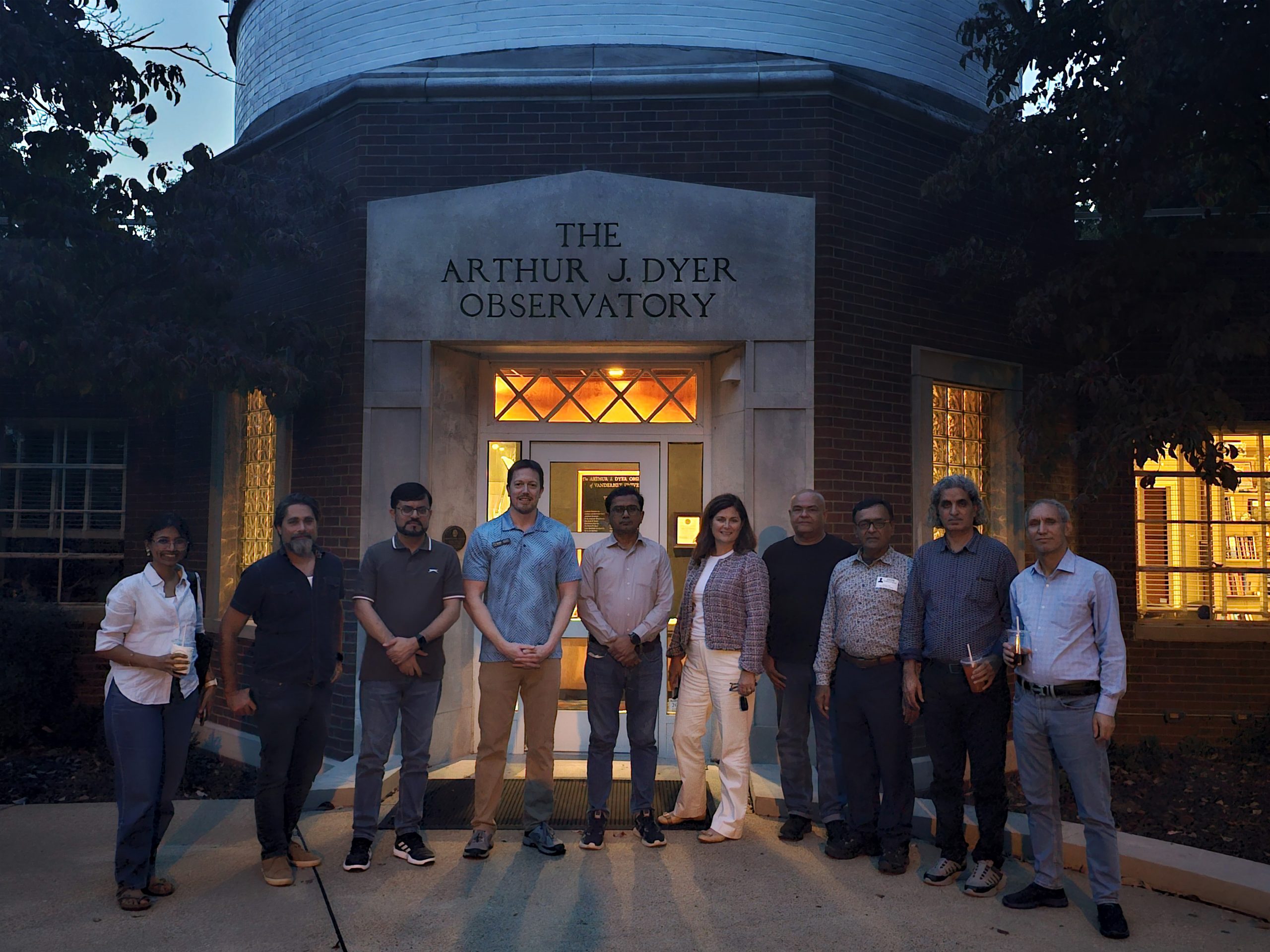
Pakistani Delegation Tours Dyer Observatory
On September 18, a delegation from Pakistan visited Dyer Observatory as part of a weeklong STEM-Powered Immersion Conference hosted by Peabody College of education and human development. Image credit: Balkis Boum In September, a delegation from Pakistan visited Vanderbilt University for the weeklong STEM-Powered Immersion Conference, hosted by Peabody… Read MoreSep. 29, 2025
-
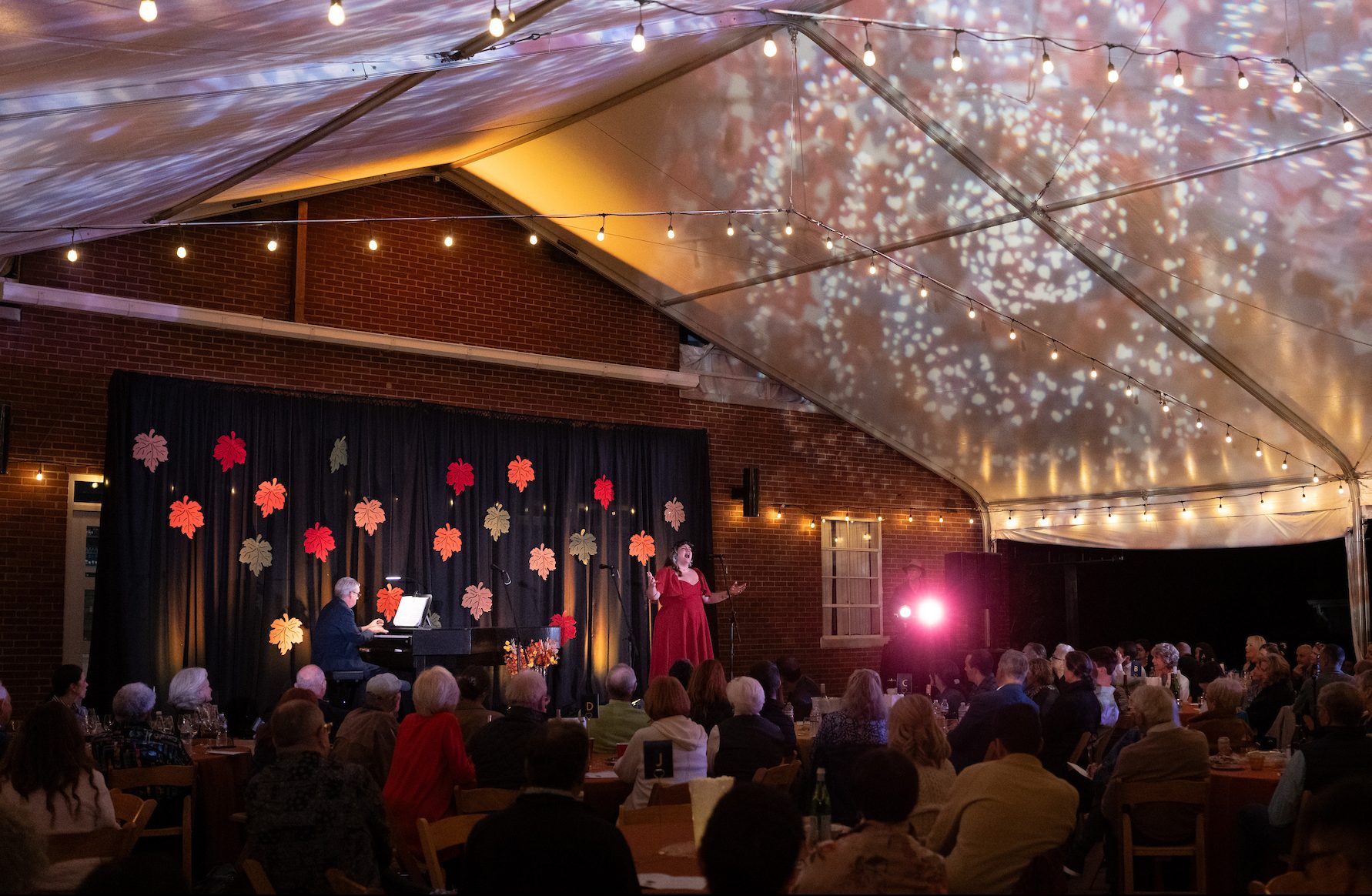
There’s Nothing Like Opera Under the Stars
Opera on the Mountain at Dyer Observatory on Saturday September 6, 2025. Photos by Joe Howell Many of Nashville’s music lovers are familiar with Dyer Observatory thanks to the Bluebird on the Mountain concert series that features songwriters and artists performing some of the most well-known… Read MoreSep. 29, 2025